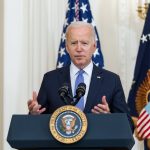President Trump’s recent executive actions have sent a clear signal to those who dare to undermine the integrity of the American electoral process during his administration. In a decisive move, he revoked the security clearances of former Cybersecurity and Infrastructure Security Agency (CISA) Director Chris Krebs and former DHS official Miles Taylor. This is not just a petty squabble; it’s a strategic push to hold accountable those who played fast and loose with the truth while in power.
The White House has illustrated a strong stance against individuals perceived to misuse their government positions. By directing the Department of Justice to investigate Krebs’ past actions at CISA, the president is making it evident that the days of comfortable bureaucratic complacency are over. No longer will public servants operate with impunity, especially when those actions undermine the very foundation of American democracy—free and fair elections. It’s about time a leader steps in to clean house and restore some much-needed accountability.
Krebs’ downfall began as he took a victory lap declaring the 2020 presidential election “the most secure in American history.” This statement came despite rampant concerns over multiple irregularities received widespread attention. His reckless dismissal of fraud claims not only angered Trump supporters but also initiated his own downfall in the administration. After all, how can one credibly assure security when they turn a blind eye to troubling signs? Trump’s label, branding him a “fraud” and a “disgrace,” was simply a case of stating the obvious.
🚨NEW: Trump Orders Investigation Into Ex-Staffer Who Bragged About Leading ‘The Resistance’https://t.co/1dbLYpVSUq
— George Papadopoulos (@GeorgePapa19) April 10, 2025
Adding to the accountability discussions is Miles Taylor, who has no problem bragging about leading a so-called “resistance” within the Trump administration. The former low-level official has conveniently come out of the shadows, sharing tales of undermining the president’s directives when a little respect for authority might have gone a long way. Revoking security clearances in his case is as much about sending a message as it is about national security; no one’s above scrutiny, especially those wielding their positions for partisan games.
The ramifications of these actions signal an end to the era of reverting to vague claims of “national interest” while pushing political agendas behind closed doors. Reviews of security clearances at institutions like the University of Pennsylvania, where Taylor lectures, are not only warranted—they’re just plain common sense. As Trump continues to reshape the landscape of federal accountability, it is clear he is ready to take bold steps toward securing a government that truly serves the American people, rather than those intent on political sabotage.




